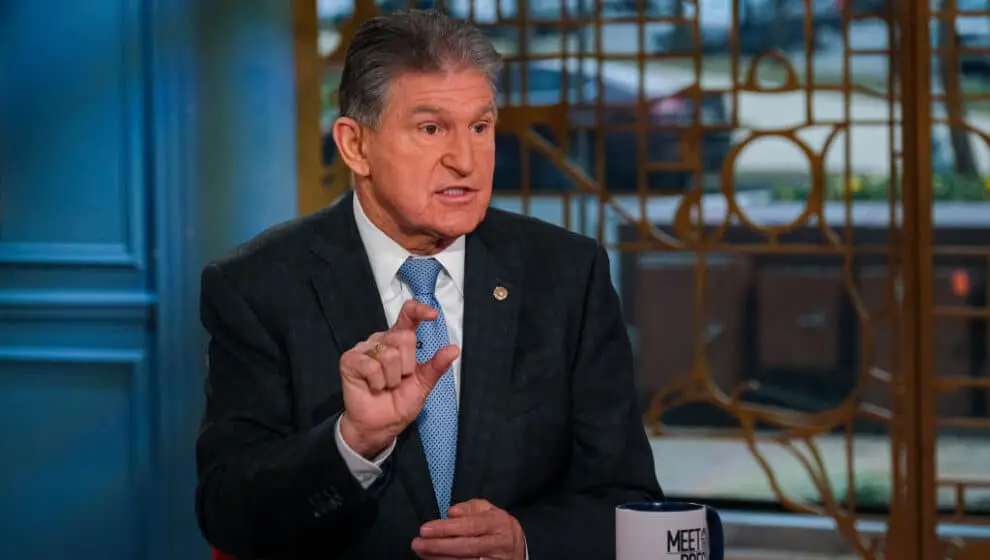Senator Joe Manchin (D-WV), a significant voice in creating the Inflation Reduction Act (IRA), is calling for the delay of electric vehicle (EV) tax credits due to the Treasury Department’s rule tweaks.
Key Details
- Manchin introduced the American Vehicle Security Act on Wednesday, which delays the implementation of tax credit rules until March and curbs tax credits on vehicles that don’t meet the battery requirements of the IRA.
- In a Wednesday press release, the senator noted that the Treasury Department had tweaked rules that allowed for the circumvention of stringent supply chain requirements, allowing for key parts and components to be produced overseas.
- “The IRA is first and foremost an energy security bill, and the EV tax credits were designed to grow domestic manufacturing and reduce our reliance on foreign supply chains for the critical minerals needed to produce EV batteries,” says Manchin.
- President Joe Biden has faced pressure from global leaders to loosen guidelines in the IRA that restrict tax credits to domestically produced vehicles. The Treasury Department’s tweaks to the rules reflect a loosening of the law’s rules.
Why It’s News
As we previously reported, the global EV market has exploded in the past two years, with sales tripling since President Joe Biden took office in January 2021. With the implementation of the IRA, the market only stands to grow larger with federal tax credits of $7,500 per domestically produced EVs.
Fears of a global climate trade war are putting pressure on the Biden administration to undo some of the protectionist elements of the IRA. Being a Democrat in a purple state, Manchin shares Biden’s goals of addressing climate change but also has the mandate to push the importance of domestic manufacturing and reducing U.S. reliance on hostile nations like China.
Notable Quote
“We cannot continue down this path. I’ve said it before, and it bears repeating that we can’t have national security without energy security and energy independence. The IRA and the EV tax credits must be implemented according to the Congressional intent to ensure the United States, as the world’s superpower, is not beholden to countries that don’t share our values,” says Manchin.
Backing up a Bit
The overall increase in demand in EVs has been met with criticism, from partisan critics to auto manufacturers.
While global leaders are criticizing the U.S.’s exclusivity in its tax credits, individual states are approaching EVs very differently. Lyft attempted to sponsor a high-income tax bill in California to provide tax credits for EVs that received bipartisan backlash. At the same time, Wyoming Republicans have tried to limit EV sales in its state to protect the oil and gas industry.
Toyota CEO Akio Toyoda is less optimistic that the market will embrace EVs at the rate major automakers are pushing them out and warned that the goal of eliminating new gas cars by 2035 was unlikely.
It is also questionable whether the tax credits will make a dent in sales. Fluent Financial CEO Mitch Kramer told Leaders Media that automakers have already begun taking advantage of the tax credits by raising EV prices as much as $6,000 to $8,500 in recent months, mostly eliminating the benefit of a $7,500 tax credit.
